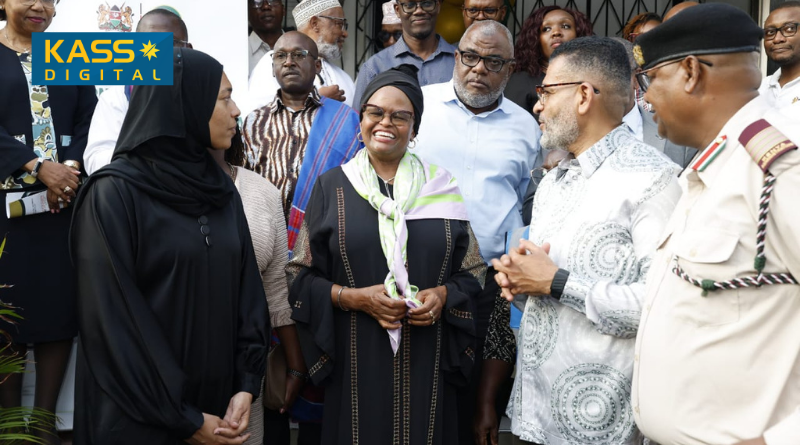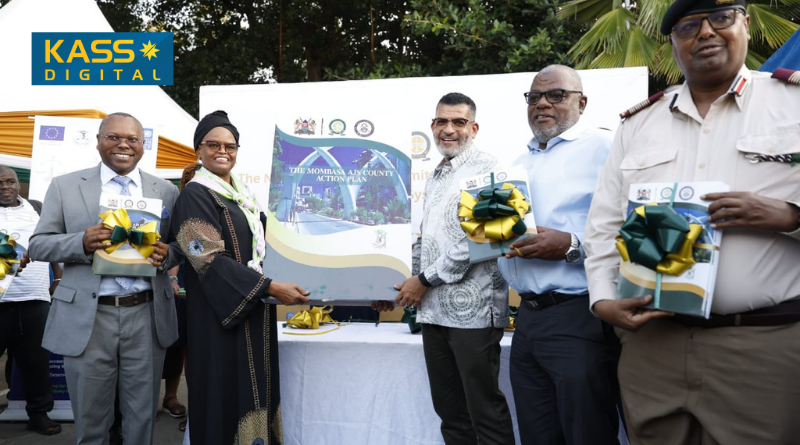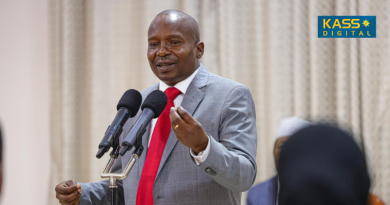CJ Koome Pushes for Alternative Justice to Ease Land Disputes
By Chemtai Kirui | Mombasa, Kenya
Chief Justice Martha Koome has urged coastal communities to embrace the Alternative Justice System (AJS) as a faster, more humane way to resolve land disputes.
Speaking at the launch of the Mombasa AJS Centre County Action Plan, and Model,on Thursday at the Ukumbi Suite, Koome described AJS as a “community healer” that delivers restorative justice while easing pressure on clogged court dockets.

Mombasa becomes the 11th county to adopt people-centred justice roadmaps.
Koome commended the Judiciary, county government, civil society, and development partners for their collaboration, stressing that “justice is a shared responsibility beyond the courts.”
“Unlike the adversarial court process, AJS provides a people-centred approach that prioritises reconciliation, preserves relationships, and promotes peace. It allows people to be heard in their own voices, in culturally resonant ways,” Koome said.
She said that coastal Kenya has for decades grappled with land conflicts, family disputes, high youth unemployment linked to extremism, and the scars of historical injustices.
Courts alone cannot shoulder these challenges.
Court Annexed Mediation, introduced in 2016 and strengthened by the 2022 Mediation (Pilot Project) Rules, allows settlement agreements to be formally registered in court.
A 2017 judiciary study found only 10% of Kenyans with legal disputes use courts, while 71% turn to alternative methods, whilst a recent independent analysis found Kenya’s court backlog has grown 113% over seven years, reaching 649,229 cases in 2022/23.
The Mombasa AJS Centre will serve as a hub for community-led mediation, tapping into cultural traditions such as Kaya Elders’ arbitration and Swahili communal dialogue practices.

Koome added that localized models are not only about justice but also about identity, heritage, and empowerment.
“More than 2,000 land cases are pending,” said Mombasa Governor Abdulswamad Nassir, adding that, “justice must be timely and respect local customs, and AJS is the best way forward.”
According to judiciary data, inheritance and land disputes often take years to resolve in formal courts.
The programme, anchored in Article 159(2)(c) of the Constitution, which explicitly directs courts to promote alternative dispute resolution , including traditional systems, is expected to reduce case backlogs, promote social cohesion, and reinforce the country’s push for restorative justice.



